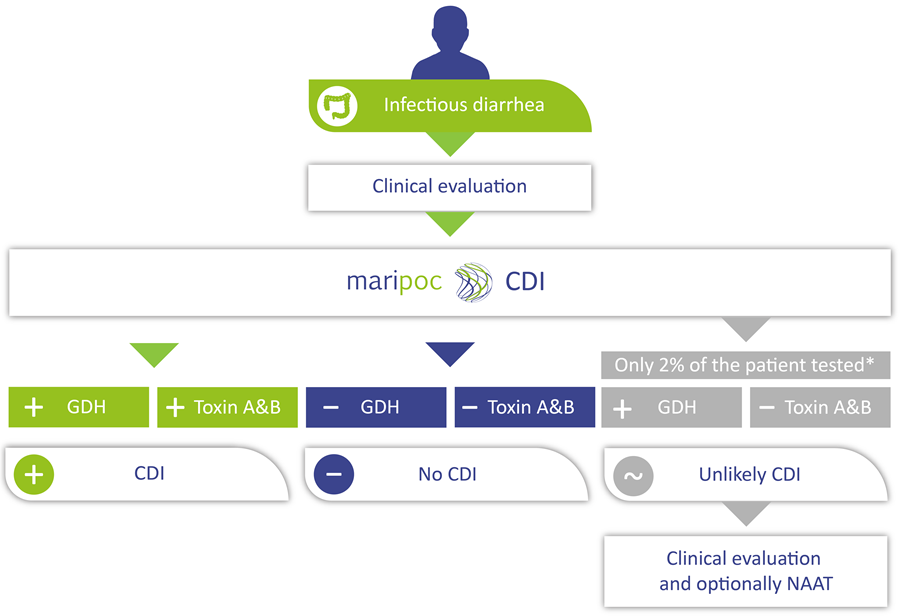
Blog
C. difficile infection: Superior performance diagnostics with mariPOC
What is CDI (C. difficile infection)?
CDI is the most commonly diagnosed cause of antibiotic and healthcare-associated infectious diarrhea. Colonized C. difficile bacteria may overwhelm beneficial microbiota in the intestine after antibiotic treatment. The disease emerges when intestinal cells are damaged in the presence of toxin A and B proteins produced by the bacteria.
From a diagnostic perspective, relevant biomarkers are:
- GDH: Glutamate dehydrogenase is a protein expressed by all C. difficile strains in large quantities
- Toxin A and B: Toxin A and B are cytotoxins expressed by toxigenic C. difficile strains, causing cell death in intestine and potentially leading to severe colitis
How to diagnose CDI to meet the ESCMID guidance with mariPOC?
ESCMID guidance recommends stepwise testing algorithms for CDI.
mariPOC CDI test was developed to combine these steps in one simple process.
mariPOC CDI test includes:
- Highly sensitive GDH antigen test to support ruling out the disease
The test has 99% negative predictive value for CDI (similar to NAAT)
- Highly specific Toxin A/B antigen test to rule in the disease
The mariPOC test is more sensitive than a widely used toxin test of another manufacturer by detecting 20% more true positive cases (Read the study).
Toxin A/B positivity has high 95-99% positive predictive value for CDI (about 50% for NAAT)
Workflow with mariPOC CDI test

Why using mariPOC CDI test to diagnose CDI?
- Meet ESCMID guidelines for CDI
- Rule out CDI with GDH negative result
- Confirm CDI with toxin A/B positive test
- Increase the sensitivity of CDI diagnosis


